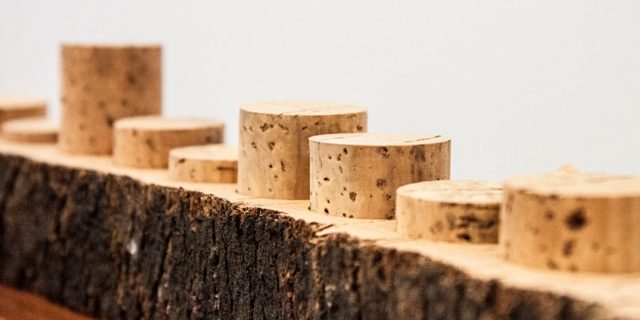Cork is a pretty extraordinary material and that is why it has so many uses. The key to cork’s many properties is its honeycomb cell structure. Each cell is a 14-sided polyhedron filled with air with an extremely strong and flexible membrane that is waterproof and airtight. Cork bark is in fact about 89% air, giving it a very low density, but when it is compressed the air is not squeezed out, because the cell membranes will not release it, which is why it will return to its original shape when the compression is removed.
The amazing cell structure of cork gives it the following much sought after properties:
Elastic and Resilient: The flexibility of the cork cell membranes are extremely flexible, compressible and elastic, so it will always tend to return to its original shape, no matter what sort of pressure it is put under. This makes it a fantastic product to use for bottle stoppers, because even after years of compression in the neck of a bottle, it still retains its elasticity so maintaining an airtight seal. You will see this when you remove a cork from a bottle that it will instantly swell back to its original size, making it difficult to fit back into the bottle, no matter how old the bottle is.
Light: Cork’s low density means that it floats on water; moreover the fact that is has such strong watertight cell membranes means that it will not absorb water and gain density/mass in humid conditions. That is why for example it is the perfect product to use for fishing floats.
Insulation: Cork gives a very low conductivity of heat, sound and vibration, mainly because the cell honeycomb structure means that it is made up of lots or tiny, sealed pockets of air which give it incredible insulation properties that are also very durable. In its natural form, cork is also a very good fire retardant, although cork dust is actually extremely flammable (because here the cell structure has been broken down).
Impermeable: Cork has a magic chemical in its cell membrane that makes it completely impermeable to liquids and gases. This chemical is a mixture of fatty acids and heavy organic alcohol called suberin, which as well as rendering cork impermeable also stops it from rotting or degrading over time.
Durable: Cork is extremely durable and has a high friction coefficient, so will survive repeated impact or rubbing extremely well. This means that it can be used for example in cork shoe soles or for industrial applications that require high levels of resistance.
Hypoallergenic: Cork does not absorb dust, so is ideal for use by people who suffer from allergies or asthma. The fact that cork flooring and cork wall coverings are very easy to clean, also add to its hypoallergenic properties.








